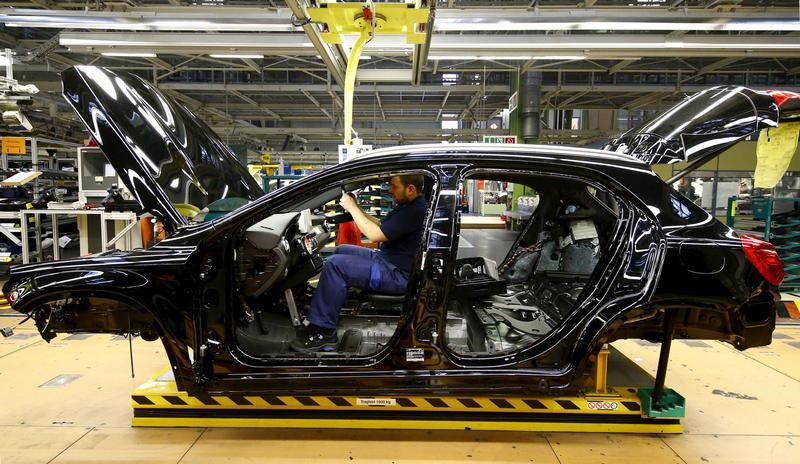BERLIN (Reuters) - German manufacturing growth slowed slightly in November, but solid demand from domestic and foreign customers kept it robust overall, a survey showed on Thursday, suggesting that factories will contribute to a rebound in the fourth quarter.
Markit's Purchasing Managers' Index (PMI) for manufacturing, which accounts for about a fifth of Europe's largest economy, fell to 54.3 from 55.0 in October, which was the highest level in nearly three years.
The November reading was a tick below a flash reading of 54.4 points, but comfortably above the 50 line that separates growth from contraction.
IHS Markit economist Oliver Kolodseike said the average reading over the fourth quarter so far was the best since the beginning of 2014, suggesting manufacturing should make a positive contribution to growth at the end of the year.
New order intakes rose a bit less sharply than in the previous two months. Still, the overall growth pace was robust, with panellists pointing to increased demand from both the domestic and foreign markets such as China and Russia.
Sector data showed producers of consumer and intermediate goods recorded solid growth. Manufacturers of investment goods reported weaker expansions.
Supporting this mixed picture in manufacturing, orders for German machines fell by 10 percent in real terms from the previous year in October, the VDMA engineering association said on Thursday.
The drop was driven by a 15 percent decline in orders from abroad, while demand from domestic customers rose 1 percent.
Production in engineering nearly stagnated in the first nine months of 2016, edging up by just 0.4 percent on the year.
"This meets our expectations of overall stagnating production in the engineering sector in the whole year," VDMA chief economist Ralph Wiechers.
In the broader manufacturing sector, companies continued to hire new staff in November as they tried to raise capacity, the PMI survey showed. Although the rate of job creation slowed, it remained among the strongest seen in the past five years.
"Moreover, with backlogs rising sharply and companies ramping up their purchasing activity, it is likely that the positive trend in the sector continues into the new year," Kolodseike said.
German economic growth slowed over the summer as exports weakened, with growth in gross domestic product halving to 0.2 percent on the quarter in the three months through September. The economy is expected to rebound in the fourth quarter.

For 2016 as a whole, the government expects domestic demand to propel growth of 1.8 percent, the highest in five years. For 2017, Berlin predicts a slowdown to 1.4 percent because of weaker exports and fewer working days.